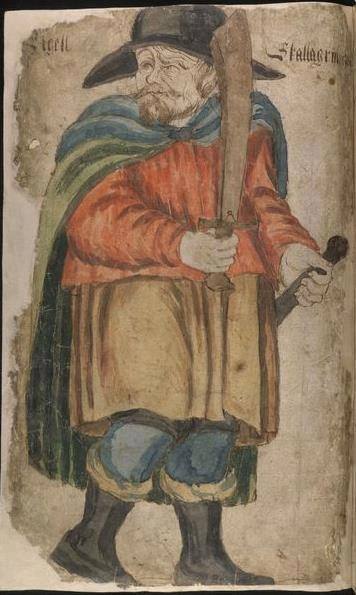“Here I am at the hearth
Of my host, Yngvar
The Generous, who grants
Gold to heroic men;
Free-handed fosterer,
You’ll find no three-year
Babe among bards
More brilliant than me.”

So “penned” the three-year-old Egill Skallagrímsson after stealing a horse from this father to attend his grandfather’s feast. That small poem was just a precursor for the man who would become known as one of the best poets of the Viking age. Planting an ax in the skull of the boy who cheated him at a game at seven years old would similarly set the tone for a man who would become known as a fierce warrior prone to berserker rages.
From Egill’s Saga, one of the great Icelandic family saga’s written in the 13th Century by Snorri Sturluson, we learn about a man who was both a unforgiving warrior and a masterful poet. He spent a good half of his life as a very successful Viking chieftain who’s violent tendencies took him through most of Northern Europe. From Norway to Latvia, from Sweden, to Saxony, his exploits were prolific.
Egill was known to always strike out in revenge against those who wronged the ones he loved, even going so far as to rip out the throat of a man with his teeth in an honor duel. For all the man was known for his ferocity, Egill Skallagrímsson was also known for his love of his family. This is seen most clearly in his poetry. Many of his poems were composed as a result of the death of someone he loved. He wrote a poem for his brother, Thorold, and recited it at his poems. He also wrote a poem named “Sonnatorrek” after the untimely death of both of his sons.
His skills don’t end there, however. Egill was considered a skilled rune master, even going so far as to heal the daughter of a man with whom he was staying by carving runes into a stick and placing it under her pillow. Truly he seemed to be gifted by the Allfather.
Egill retired to a farm in his middle years and lived to be nearly 90 years old before dying of a sudden and quick acting illness.
What can we learn from this story?
Egill represents the true duality of human nature.
Egill’s Saga is one of war and one of love. We watch the pagan chief battle his way across all of Northern Europe, and we watch him immortalize his love of his friends and families through masterful poems. His loyalty to those who were important to him was tantamount to the man he became.

You must be logged in to post a comment.